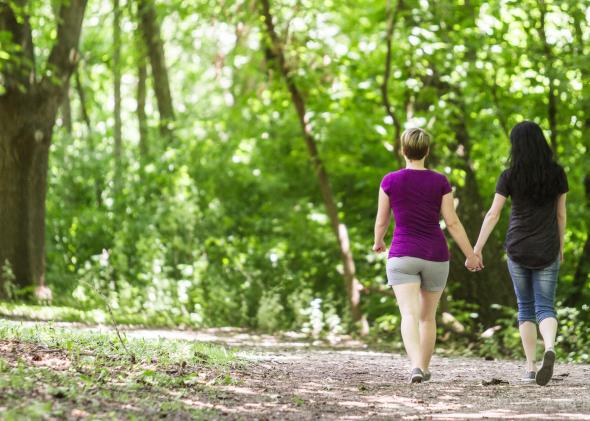This is the second entry in an Outward dialogue. Earlier, Vanessa Vitiello Urquhart celebrated the decline of gay culture. Later, Vitiello Urquhart rhapsodized about assimilation and Thomas bemoaned the lack of a queer canon.
Vanessa,
Why are you playing taps for LGBTQ culture? If you don’t care for it, feel free to ignore it. But you seem positively gleeful about its impending demise. I don’t understand why you’re worried about people expending “time, energy, and emotional bandwidth on pleas to preserve gay spaces.” It’s not as if hordes of gay men are abandoning their responsibilities to prop up doomed piano bars or that lesbians are giving up their careers to devote themselves to the preservation of traditional flannel-shirt patterns. And I certainly don’t see too many of our brothers and sisters organizing to save the gay bar.
Gay culture—or, more accurately cultures, since our rainbow coalition contains multitudes—isn’t like Sandals, an all-in vacation resort that you check into and never leave until it’s time to head to the airport. It’s perfectly possible, normal even, to treat queer culture like a drop-in center: read a gay novel now and then; go out on a jaunt with a lesbian bird-watching group occasionally; take in a drag show once every decade. Those things will continue to exist and thrive if enough people are interested in them. Otherwise, they’ll disappear, only to be memorialized in queer studies monographs; collected in lesbian herstory archives; and remembered with fondness by the folks who enjoyed them in their heyday.
You’re more optimistic than me about the speed with which the arc of the moral universe is bending toward justice. Judging from your earlier post, you’d think we’re mere weeks away from every lezi-gay-trans kid’s coming out to their family being greeted with applause and a rainbow-frosted cake. But even if I’m just being an gloom-puss about pervasive familial homophobia messing up gay kids; even if telling your family that you fancy members of your own sex, or members of both sexes, becomes as insignificant as telling them you want your college major to be physics; do you really think that the urge to spend time with other lesbians and gay men will simply disappear? And if, heaven forbid, it did, is there nothing you would miss? Isn’t there anything you want or need to learn from your queer elders?
Even when seeking out the company of one’s fellow homosexuals is no longer a matter of psychological or physical necessity, doesn’t it seem likely that we might still do it for fun? I’m old and in love with television, so I rarely step into a gay bar, but when I want to dance—an urge I get quite frequently—I’d much rather do it with my people. I’m not afraid to get down with heterosexuals, but there’s a joy that comes from dancing in a room full of queers that I’ve never experienced in a “straight bar,” even when I’m in the company of dear friends. It’s not exactly erotic—I experience this high even when I’m getting sweaty with a bunch of gay men—but it’s somewhere in that realm.
But the part of your vision of the near future that most confounds me is your talk of reclaiming your “birthright.” You seem to be saying that we won’t need separate gay spaces, because we’re going “to be fully integrated into the communities that gave birth to us.” Is that compulsory? Because while I have a certain pride in my birth community, which for these purposes I’ll define as working-class Northern English—I mean, I enjoy Coronation Street, brass bands, and black pudding more than most—that’s just one of the communities I belong to, and at this point in my life the connection is pretty weak. Yes, I’m a queer-culture-loving lesbian, but I’m also a journalist, a TV addict, a stationery lover, a Brooklynite, and much more. I’m integrated into all those “communities,” and I understand that those identities are subject to social and economic evolution. But I don’t want any of them to disappear.
Maybe I’ll understand better if you sketch out your vision of our fully integrated future. What do you think being a lesbian will look like in 2025?
Will lesbians still have entire cupboards full of herbal teas?
June
